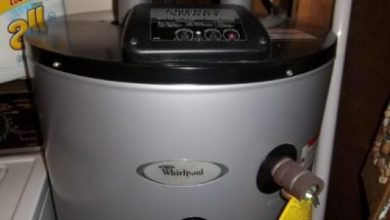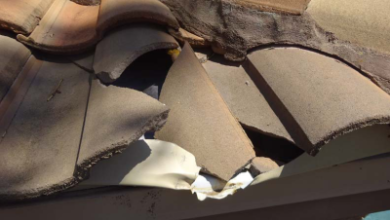The industrial landscape relies heavily on flexible hoses, whether for manufacturing, construction, agriculture, or other applications. When buying these hoses in bulk, the stakes are higher—making the right purchase can save money, time, and even prevent costly operational disruptions. Navigating the wholesale market for flexible hoses requires a strategic approach to ensure you’re getting the best deal without compromising on quality. In this blog, we’ll provide essential tips for purchasing Flexible hose wholesale, helping you make informed decisions that benefit your business.
The Advantages of Buying Flexible Hoses Wholesale
Purchasing flexible hoses wholesale comes with several key advantages:
- Cost Efficiency: Lower prices per unit and the potential for bulk discounts.
- Supply Stability: A consistent supply reduces the risk of running out of essential materials.
- Streamlined Procurement: Simplified purchasing processes save time and administrative effort.
- Custom Solutions: Wholesale suppliers often offer customization options that can be tailored to your specific needs.
Key Tips for Buying Flexible Hoses Wholesale
1. Understand Your Specific Needs
Before diving into the wholesale market, it’s crucial to have a clear understanding of your specific requirements. Consider the following:
- Application: What will the hoses be used for? Different applications require different materials, diameters, and pressure ratings.
- Quantity: How many hoses do you need? Knowing your quantity upfront will help you negotiate better deals.
- Environmental Conditions: Consider the working environment—temperature, exposure to chemicals, or abrasion could impact the hose’s performance.
Example: If you’re in the food industry, you’ll need hoses that are food-grade certified and resistant to frequent cleaning chemicals.
2. Research and Choose Reputable Suppliers
Not all suppliers are created equal. To ensure you’re buying from a reliable source, thorough research is essential:
- Supplier Reputation: Look for suppliers with positive reviews and a solid track record in the industry.
- Certifications and Standards: Verify that the supplier’s products meet the necessary industry standards, such as ISO certifications.
- Experience: Choose a supplier with experience in your specific industry or application.
Example: A pharmaceutical company should partner with a supplier experienced in providing hoses that meet strict hygiene and safety standards.
3. Evaluate the Quality of the Hoses
Quality should never be compromised when purchasing flexible hoses, as the consequences of failure can be severe. Assess the quality by:
- Material Composition: Ensure the hoses are made from materials suitable for your application, whether it’s rubber, PVC, or another material.
- Durability: Check for features like abrasion resistance, UV protection, and chemical resistance.
- Performance Testing: Inquire if the hoses have undergone testing to ensure they meet performance specifications.
Example: A mining operation should prioritize hoses that are abrasion-resistant and capable of withstanding extreme pressure.
4. Compare Prices and Look for Bulk Discounts
While price is a significant factor, it’s important to weigh it against the overall value. When comparing prices:
- Bulk Discounts: Ask suppliers about discounts for large orders or recurring purchases.
- Hidden Costs: Be aware of additional costs such as shipping, handling, or customization.
- Price vs. Quality: Don’t automatically go for the lowest price—consider the long-term value of higher-quality hoses.
Example: A construction company might find it more cost-effective to pay a bit more for hoses that last longer, reducing the need for frequent replacements.
5. Assess Delivery and Logistics Capabilities
Timely delivery is crucial to maintaining your operations. When evaluating suppliers, consider:
- Lead Times: Ensure the supplier can meet your delivery schedule. Delays can disrupt your project timeline.
- Shipping Options: Assess the available shipping methods and their costs. Choose the most efficient and reliable option.
- Order Accuracy: Ensure the supplier has a reliable system for accurate and complete order fulfillment.
Example: An agricultural operation needs to ensure that hoses are delivered on time for the planting season, as any delay could impact crop production.
6. Consider Customization and Special Requirements
If your operation has unique requirements, customization may be necessary. Discuss your needs with potential suppliers:
- Custom Lengths and Sizes: Ensure the supplier can provide hoses in the specific lengths and diameters you require.
- Special Features: Ask about the availability of hoses with special properties, such as anti-static, high-temperature resistance, or reinforced layers.
- Prototype Testing: If possible, request a prototype or sample to test before committing to a large order.
Example: An electronics manufacturer may require anti-static hoses to prevent electrical discharge during production.
7. Evaluate After-Sales Support and Service
Strong after-sales support is a sign of a reliable supplier. Evaluate their service offerings by considering:
- Technical Support: Ensure the supplier offers technical assistance for installation and troubleshooting.
- Warranty and Returns: Review the warranty terms and return policies to protect your investment.
- Customer Service Responsiveness: Check how quickly and effectively the supplier responds to inquiries and resolves issues.
Example: A chemical processing plant might need immediate technical support if a hose fails during operation, so a supplier with 24/7 customer service would be ideal.
8. Review the Supplier’s Environmental and Ethical Practices
If sustainability is important to your business, consider suppliers that align with your values:
- Eco-Friendly Materials: Look for hoses made from sustainable or recycled materials.
- Green Manufacturing Practices: Choose suppliers that minimize environmental impact in their production processes.
- Ethical Sourcing: Ensure the supplier adheres to ethical labor practices and sourcing standards.
Example: A company with a green initiative might choose a supplier that uses recycled materials and has a low carbon footprint in their manufacturing process.
Conclusion
Navigating the wholesale market for flexible hoses requires careful planning and consideration. By understanding your specific needs, researching reputable suppliers, evaluating quality, and considering factors such as customization, logistics, and after-sales support, you can make informed decisions that benefit your business in the long run.
Investing in high-quality, reliable hoses from a trustworthy supplier ensures not only operational efficiency but also safety and durability. Whether you’re in construction, manufacturing, agriculture, or another industry, the right supplier can help you maximize value and achieve success in your operations.




